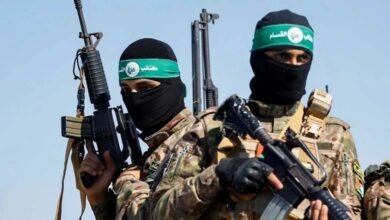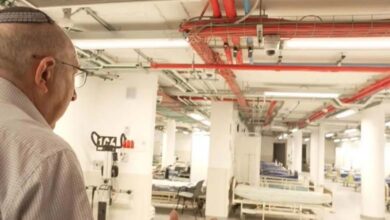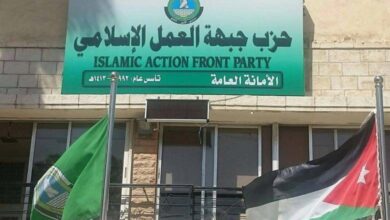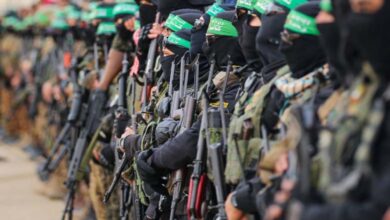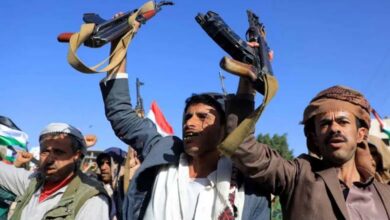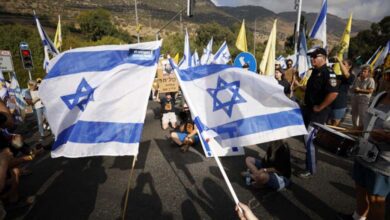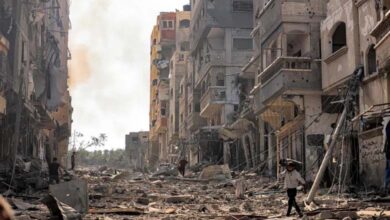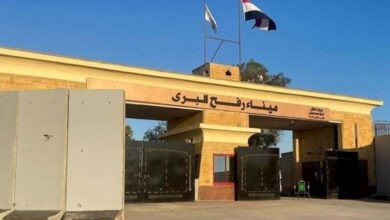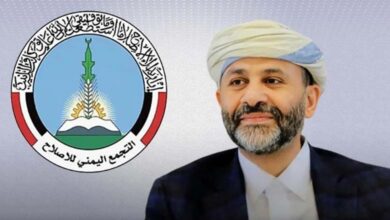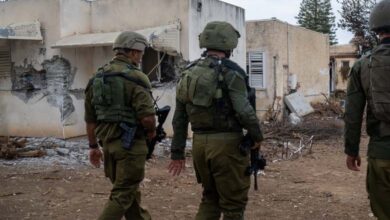The increase of tensions between Iran and the US, and the readiness of Lebanon and Iraq
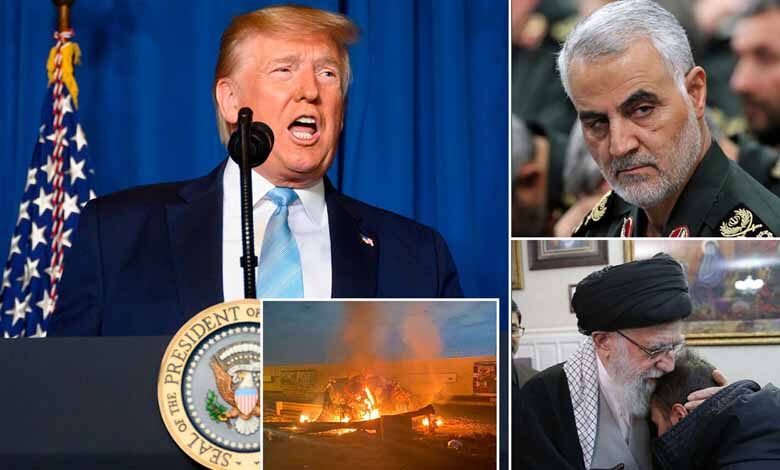
A US drone attack inside Iraq killed, one year ago; one of Iran’s most powerful military officials, Islamic Revolutionary Guard Corps (IRGC) Commander Qassem Soleimani, in what Washington described as a response to amplified assaults on its interests in the region.
Before the first anniversary of the attack that killed Soleimani and deputy commander of the Iran-backed Popular Mobilization Units (PMU) in Iraq, American embassies and forces have been on high alert. Otherwise, Iran and its regional proxies have upped their rhetoric and threat against any military action that US President Donald Trump could order in the last days of his presidency.
Pictures of the two killed commanders have covered Beirut’s southern areas, while photos of the two men were on Iraq on the weekend. Statues and memorials were made in various parts of the two countries. Countries in the region where Iran has a heavy foothold, including Lebanon and Iraq, look currently on in despair.
On its part, the US declared late Sunday its decision to withdraw the aircraft carrier USS Nimitz from the Arabian Gulf. During the recent weeks, Washington’s B-52 bombers have also made many overflights in the region to prevent Iran from any potential assaults.
Furthermore, Iran-backed Hezbollah in Lebanon and Iraq’s PMU showed their readiness to defend Iranian interests in the face of what they say are US threats. A senior Lebanese official source recently informed Al Arabiya English: This place [Lebanon] is in shambles, there is no state here and there is not much we can do to stop any potential fighting from breaking out between the US and Iran on our land.
During the weekend, Hezbollah fighters wearied their Battle Dress Uniforms in a ceremony held in south Lebanon near the border with Israel to remember Soleimani and al-Muhandis.
Hezbollah’s leader, Hassan Nasrallah, spoke of Iran’s military readiness to respond to the US whenever it deems proper. He was also obliged to play down comments made by a senior IRGC figure, after the latter’s comments were indirectly criticized by Lebanon’s president and more frankly by many Lebanese politicians.
The IRGC official related when he spoke to Hezbollah’s Al-Manar TV station, that projectiles in Lebanon were part of Iran’s dispute with Israel and that Lebanon’s strength was a result of Iran’s support.
Thereafter, Lebanese President Michel Aoun said in a tweet that the Lebanese people have no partner in maintaining their independence. He also said that no one was a partner in ensuring Lebanon’s sovereignty on its borders, its land and freedom in decision-making. However, he did not specify who or what he was responding to. While, the Iranian general, Amir Ali Hajizadeh, threatened Gulf nations who [support] Israel, that they would not be outside the scope of repercussions of any potential US attack on Iran.
It should indicate that Gulf States, directed by the United Arab Emirates and Bahrain, normalized relations with Tel Aviv, and then Sudan and Morocco. The steps were deeply criticized by Iran that claims to be a proponent of defending Palestine’s right to an independent state.
Nasrallah, during a televised speech on Sunday, alleged that Lebanese media outlets incorrectly paraphrased Hajizadeh’s comments and alleged that Washington was paying Lebanese outlets to air anti-Hezbollah content. He did not clarify or refer to Hajizadeh’s threats against Gulf nations.
The view from Iraq
Thousands of people marched in Iraq, to support Iran and its proxies, demanding a withdrawal of US troops from the country, and the march was organized by the PMU.
With the increase of public comments, Lebanon and Iraq continue their readiness patiently, hoping there is no escalation.
In fact, Lebanon is previously experienced an unprecedented economic and financial crisis that has been intensified by anti-government demonstrations, the coronavirus pandemic, and the deadly August 4 Beirut explosion. Just the security situation still one of the few elements that is intact in the country.
Nevertheless, the economic situation in Iraq is not much better as Baghdad’s leadership last month diminished the national currency in the presence of reduction in oil prices that hit the country’s vital oil revenues hard.
Before the January 4 anniversary of Soleimani’s killing, Iraq’s military published a statement demanding respect for its sovereignty from Washington and Tehran.
Besides, the Lebanese official source was expressed its pessimistic that tensions would defuse with a new US administration under President-elect Joe Biden, who would take office January 20.
It’s expected that Biden take a more diplomatic approach towards Iran, in contrast to Trump’s maximum-pressure campaign. Some hope that Biden’s foreign policy would lead to an easing of tensions. A senior Western diplomat, speaking to Al Arabiya English on condition of anonymity, evoked the pessimistic vision of things to come for Lebanon, specifically.
The diplomat related: But this isn’t the fault of the US or of Europe, Lebanese officials don’t want to implement reform and they try to blame everything on sanctions and the US-Iran tensions.
About Iraq, a Western intelligence source reported that the Iranian-backed forces were so entrenched in state institutions and decision-making that little could be done without violence in the face of Iran, which is something all sides want to avoid.
The source added: This situation is going to drag on and although the status-quo is not ideal, the situation is boiling and could explode at any given moment


